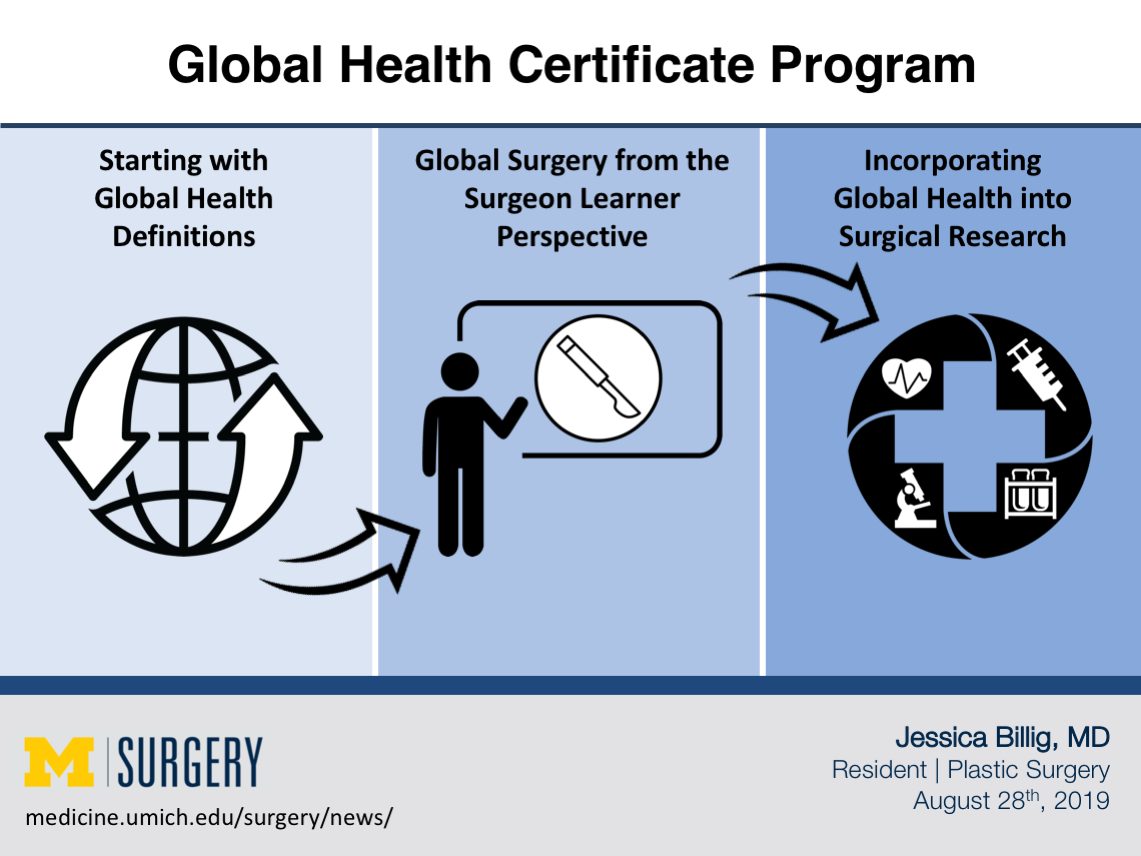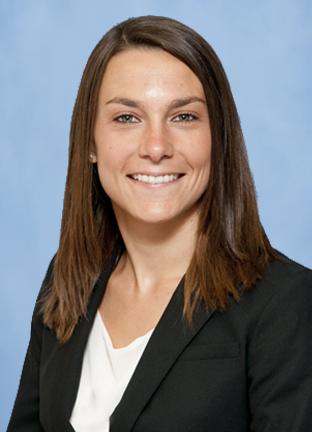

Starting with Global Health Definitions
As residents learn to become independent researchers, Global Reach (Research, Education, and Collaboration in Health) provides a unique opportunity to understand how to approach global health research. This interdisciplinary program includes physicians, nurses, and other researchers within the university who want to gain additional training on how to think about global health and how to conduct research within global health. Global Reach collaborates with the Michigan Center for Global Surgery to advance these goals as well.
We began the Global Health Research Certificate Program with a frank discussion on what is global health. While this may sound obvious to many, including me initially, global health is complex, nuanced, and covers all aspects of health. Infectious diseases are a common focus of global health efforts because they cross international boundaries and often require global cooperation. However, global health encompasses much more than the commonly thought of “global diseases” such as HIV, malaria, and maternal mortality. Global health involves global cooperation, health equity, and moves beyond disease to include problems that indirectly affect health. Therefore, to capture this more all-encompassing definition of global health and to establish a global partnership between developed and developing countries, the United Nations developed the Sustainable Development Goals. The 17 Sustainable Development Goals range from fighting poverty to halting climate change. At first, the connection of these goals to health seemed unclear, but upon further consideration, it became obvious that we are talking about the health of the whole population and the individual at the same time. After learning about the expansive definition of global health, I realized I had a ton to learn and that global surgery fit perfectly in this definition, providing benefits for the individual and the community as both aspects of health are intermixed.
Global Surgery from the Surgeon Learner Perspective
Globally, many conditions need surgical treatment, and worldwide, approximately five billion people do not have access to surgical care.1 Previously, surgical and anesthesia care was not the immediate focus of global initiatives. However, in 2014, the Lancet Commission on Global Surgery was formed to help provide access to safe surgical care worldwide. This initiative included all surgical care including subspecialty care, which is commonly not available in many low- and middle-income countries. In response to this growing need, charitable global surgery organizations have increased efforts to provide surgical care through short-term surgical outreach trips. Previously, many of these trips have focused on providing high-volume surgery but have lacked the ability to transition care to local surgeons. Therefore, some organizations have moved to more sustainable surgical options through visiting educator trips, bidirectional academic partnerships, and setting up post-graduate education programs.
As a plastic surgery resident, I had been exposed to the more traditional surgical outreach trips, but faculty in the Department of Surgery are working towards more sustainable education programs. For example, Michigan surgeons participate in visiting educator trips to train local surgeons to perform more complex surgical procedures. Teaching is usually through one-on-one instruction in the operating room and lecture-based learning. However, these trips have applied the traditional American post-graduate medical education model. The Global Health Certificate Program taught me to critically think about these trips from the viewpoint of the surgeon learners and made me realize that a formal needs assessment of the surgeon learners has not been done.
Incorporating Global Health into Surgical Research
Through the education received from the Global Health Research Certificate Program and guidance from my mentors, I have thought more about how we can effectively teach surgery in low- and middle-income countries. In collaboration with surgeons at Hanoi and Thai Nguyen Orthopedics Hospitals, we are currently conducting interviews of surgeon learners during visiting educator trips to understand the teaching in their facilities and their preferred learning styles. This study aims to improve the teaching on visiting educator trips and to promote more effective education during the trips in Vietnam. We hope that by conducting this needs assessment we will be able to tailor our teaching to best achieve the educational goals of surgeon learners. This collaboration is the first step in trying to build sustainable subspecialty surgical education in Vietnam, and we know that more work is needed to increase access to surgical care worldwide.
The Global Health Research Certificate Program has provided me the tools and foundation to approach global health as a surgeon, particularly how to build a successful collaboration with our global colleagues. This program has broadened my understanding of global health, helped me incorporate global health in my research agenda, and provided collaboration that will help us improve surgical education in the global arena.
Reference
- Meara JG, Leather AJ, Hagander L, et al. Global Surgery 2030: evidence and solutions for achieving health, welfare, and economic development. The Lancet. 2015;386(9993):569-624.
Article by Jessica Billig, MD (Twitter: @BilligJessica)
Downloads

